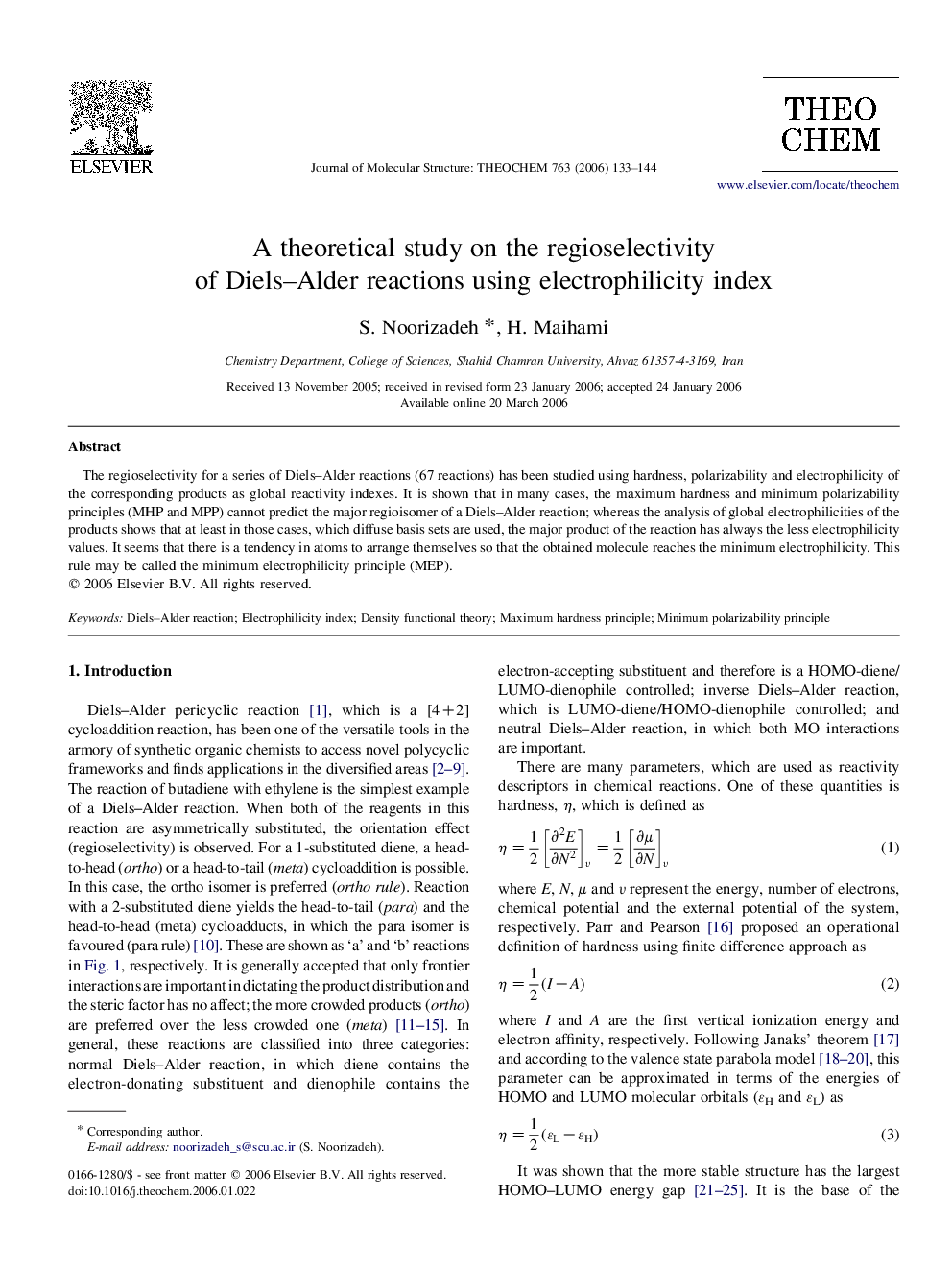| Article ID | Journal | Published Year | Pages | File Type |
|---|---|---|---|---|
| 5419099 | Journal of Molecular Structure: THEOCHEM | 2006 | 12 Pages |
Abstract
The regioselectivity for a series of Diels-Alder reactions (67 reactions) has been studied using hardness, polarizability and electrophilicity of the corresponding products as global reactivity indexes. It is shown that in many cases, the maximum hardness and minimum polarizability principles (MHP and MPP) cannot predict the major regioisomer of a Diels-Alder reaction; whereas the analysis of global electrophilicities of the products shows that at least in those cases, which diffuse basis sets are used, the major product of the reaction has always the less electrophilicity values. It seems that there is a tendency in atoms to arrange themselves so that the obtained molecule reaches the minimum electrophilicity. This rule may be called the minimum electrophilicity principle (MEP).
Keywords
Related Topics
Physical Sciences and Engineering
Chemistry
Physical and Theoretical Chemistry
Authors
S. Noorizadeh, H. Maihami,
